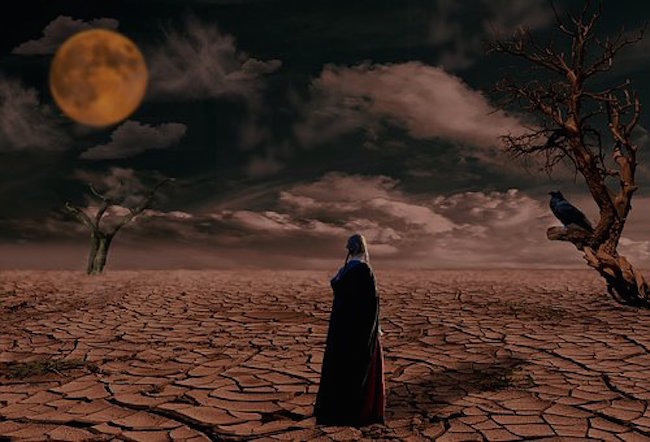A Famine Will Follow With Coronavirus by Dr. Joseph Mercola for Mercola
When the COVID-19 pandemic is over and systems are in place for any reoccurrences, the world will still not be out of the woods. Experts are predicting that food disruptions and even a famine could follow.
COVID-19 was said to be an “equalizer,” affecting poor and rich countries alike. Certainly, the infection did not spare high-profile figures like U.K.’s Prince Charles1 and Prime Minister Boris Johnston,2 U.S. Sen. Rand Paul of Kentucky3 and Miami Mayor Francis Suarez, even as it affected the poor and members of minorities.4
But the same may not be true for the aftermath of the COVID-19 pandemic, which experts predict will cause large swaths of poor nations to face hunger and starvation. Unlike the advanced food sales and distribution systems in rich countries, poor countries have unorganized systems that are heavily reliant on labor and have been deeply disrupted by COVID-19.
The economic and social disruptions caused by COVID-19 on the backdrop of harmful agricultural practices and resulting environmental destruction threaten to cause devastating world hunger, especially in poorer nations.5 Though the toll of the COVID-19 pandemic on human health will end as treatments are identified and the pandemic peaks, world hunger may be a long-lasting and grim outgrowth.
COVID-19 Affects All Facets of Society
When you look at the social, economic, agricultural and workforce fallout from the COVID-19 pandemic, it is like a perfect storm. Almost no sector of society has been spared, from travel and tourism to basic food production and delivery. According to The New York Times, a global hunger crisis looms from:6
“… the sudden loss in income for countless millions who were already living hand-to-mouth; the collapse in oil prices; widespread shortages of hard currency from tourism drying up; overseas workers not having earnings to send home; and ongoing problems like climate change, violence, population dislocations and humanitarian disasters …
There is no shortage of food globally, or mass starvation from the pandemic — yet. But logistical problems in planting, harvesting and transporting food will leave poor countries exposed in the coming months.”
Even when food prices don’t rise, countries that already suffered from food shortages before COVID-19 will face worsened situations, the Times continues:
“This is especially true for economies like Sudan and Zimbabwe that were struggling before the outbreak, or those like Iran that have increasingly used oil revenues to finance critical goods like food and medicine.”
Migrant Workers and Refugees Suffer From COVID-19
It is no surprise that migrant workers, doing the low-paying and often dangerous work that others don’t want to, are especially suffering from COVID-19-related work shutdowns. Thirty-five million migrants work in the six Arab Gulf states constituting over 80% of the population in some countries.7
In India, as many as half a million people working outside their cities or origin literally walked back home after their jobs disappeared with COVID-19. Amitabh Behar, chief executive of Oxfam India, called the exodus the “largest mass migration since independence.”8 The job loss is already causing food famines.
Throngs of displaced workers coalesce at food lines set up by the Delhi government to feed them, but the amount of food is not always sufficient. “Instead of coronavirus, the hunger will kill us,” said Nihal Singh, a migrant worker hoping to be fed. Clustered food distribution in India and elsewhere also puts people at risk, since the crowding prevents social distancing.
COVID-19-related travel bans and airport closures have also worsened a gigantic locust invasion that is destroying pastureland and crops in the East and Horn of Africa by delaying the arrival of pesticides:9
“‘The outbreak is the worst the region has seen in decades and comes on the heels of a year marked by extreme droughts and floods. But the arrival of billions of new swarms could further deepen food insecurity,’ said Cyril Ferrand, head of the Food and Agriculture Organization’s resilience team in eastern Africa.”
Refugees and those fleeing wars in their respective countries are also victims of COVID-19, says the Times.10
“Refugees and people living in conflict zones are likely to be hit the hardest. The curfews and restrictions on movement are already devastating the meager incomes of displaced people in Uganda and Ethiopia, the delivery of seeds and farming tools in South Sudan and the distribution of food aid in the Central African Republic.
Containment measures in Niger, which hosts almost 60,000 refugees fleeing conflict in Mali, have led to surges in the pricing of food, according to the International Rescue Committee.”




